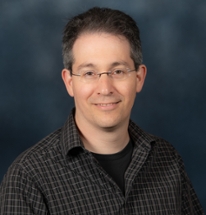
Dr Uri Maoz
- Scholarly Works:
- Digital Commons
https://braininstitute.us/people/uri-maoz
- Education:
- The Hebrew University of Jerusalem, Bachelor of Science
The Hebrew University of Jerusalem, Ph.D.
Biography
You experience it to be within your power to stop reading this paragraph. Apparently,
you freely decided to continue. Perhaps you are curious how it will unfold. But you
strongly sense that you could have done otherwise; you could have stopped reading
(and you still can). However, from what we know about the laws of nature, it is not
clear how the brain could control a neural process that would result in different
outcomes when starting from the same brain state. It is also unclear how your interest
in the contents of this paragraph led to the neural process that culminated in you
reading it.
Dr. Uri Maoz, who joined Chapman University in 2017 as an Assistant Professor of Computational
Neuroscience at Crean College and at the Institute for Interdisciplinary Brain and
Behavioral Sciences, investigates these and similar topics. His research lies at the
intersection of volition, decision-making, and moral choice. He uses a combination
of empirical techniques (e.g., EEG, intracranial recordings, behavioral studies) and
theoretical modeling to develop a computational account of volition, with an emphasis
on the decision-making processes that lead to voluntary action and on the role of
consciousness in such processes. In particular, he uses machine-learning to carry
out online, real-time, closed-loop analysis of neural data, as it is recorded. He
is further interested in the legal, ethical, conceptual, and economic implications
of this work.
Dr. Maoz earned a B.Sc. in computer science and general humanistic studies and a Ph.D.
in neural computation from the Hebrew University. As part of his graduate studies
he was a visiting student in the Weizmann Institute of Science and the Collège de
France. He was then a postdoctoral scholar at Caltech and at the Cedars Sinai Medical
Center. Later, he was a researcher at the Department of Neurosurgery at UCLA and then
faculty at the Department of Psychology there. He is a Visiting Assistant Professor
at the Department of Anesthesiology at the David Geffen School of Medicine and at
the Anderson School of Management at UCLA. He is also a Visiting Associate in Biology
and Bioengineering at Caltech.
Institute for Interdisciplinary Brain and Behavioral Sciences
-
Recent Creative, Scholarly Work and Publications
- Robert Sapolsky, “Determined: A Science of Life Without Free Will”, Penguin Random House. 2023, Science Magazine
- Kreiman G, Liljenström H, Schurger A, Maoz U. (2022) How can computational models help us understand free will? In Maoz U & Sinnott-Armstrong W (Eds.). Free Will: Philosophers and Neuroscientists in Conversation. Oxford University Press
- Lee SJ, Wong SM, Maoz U, Hallett M. (2022) How can we determine the precise timing of mental events related to action? In Maoz U & Sinnott-Armstrong W (Eds.). Free Will: Philosophers and Neuroscientists in Conversation. Oxford University Press.
- Hopkins A, Mudrik L, Maoz U. (2022) How does lacking consensus about the neural basis of consciousness and volition affect theorizing about conscious volition? In Maoz U & Sinnott-Armstrong W (Eds.). Free Will: Philosophers and Neuroscientists in Conversation. Oxford University Press.
- Gavenas J, Hallett M, Maoz U. (2022) Which neural mechanisms could enable conscious control of action? In Maoz U & Sinnott-Armstrong W (Eds.). Free Will: Philosophers and Neuroscientists in Conversation. Oxford University Press
- Hopkins A & Maoz U. (2022) What is known about the neural correlates of beliefs and desires that inform human choices? In Maoz U & Sinnott-Armstrong W (Eds.). Free Will: Philosophers and Neuroscientists in Conversation. Oxford University Press
- Bold J, Mudrik L, Maoz U. (2022) How are arbitrary and deliberate decisions similar and different? In Maoz U & Sinnott-Armstrong W (Eds.). Free Will: Philosophers and Neuroscientists in Conversation. Oxford University Press.
- Maoz U and Linstead E. (2019) Brain imaging and artificial intelligence, in Raz A. and Thibault R., (Eds). The Dark Side of Brain Imaging. Elsevier Press.
- Titiz AS, Hill MRH, Eliashiv D, Tchemodanov N, Maoz U, Stern J, Tran M, Mankin E, Behnke E, Suthana, NA, Fried I. (2017) Theta-Burst Microstimulation in the Human Entorhinal Area Improves Memory. eLife